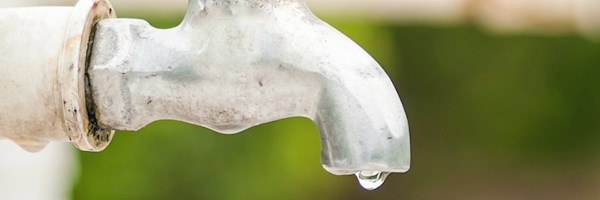With new tariffs in place that penalise excessive water usage, Western Cape households are urged to use less water in order to avoid racking up a huge bill.
Level 3 water restrictions have been implemented in the Western Cape, which means that households face the potential of very high water bills based on the city’s stepped tariff system. This tariff system is based on the amount of water each household consumes.
How do the tariffs work?
Adrian Goslett, Regional Director and CEO of RE/MAX of Southern Africa says that the first 6 kilolitres of water will still be free, but after that residents will be charged per kilolitre depending on their usage. “The tariff will start at R16.54 per kilolitre, with households that use between 20 and 35 kilolitres paying as much as R40.96 per kilolitre. The new tariffs will come into effect next month in December. If consumers want to keep their water bills at a minimum, they will need to adhere to the restrictions and find additional ways to reduce their water consumption,” advises Goslett.
Why is this happening?
As we head into summer and the temperatures rise, it becomes more important to reduce water usage to make sure that our water is sustained. Water levels in summer need to be kept consistent with the levels in winter, in order to ensure that dams do not reach critical measures. Currently, the major dams that provide Cape Town with water are down by 10% compared to last year.
“Water is a vital commodity that we require in order to survive. Without water, the environment we live in could not survive, so it is imperative that the necessary precautions are taken to ensure that this essential resource is not used carelessly,” says Goslett.
What are the water restrictions?
From the start of this month households will be asked to adhere to the following:
- Install water-efficient parts, fittings and appliances to minimise water usage at all water points such as taps, showerheads and other plumbing components.
- Top up your pool, provided the pool has a cover. Automatic top-up systems will be prohibited.
- The use of portable play pools will not be allowed.
- Only water your gardens with either a bucket or watering can. The use of hosepipes and sprinkler systems will be prohibited. Watering or irrigation is not allowed 24 hours after saturating rainfall; this includes households making use of boreholes, treated effluent water, spring water or well points. South Africans consume an estimated 30% to 50% of water on watering and maintaining their gardens, so it seems that this is the most significant area for water to be saved.
- Wash vehicles and boats with a bucket.
- Hard or paved surfaces cannot be washed or hosed down, other than for health purposes.
- Only use ornamental water features such as fountains if the water is recycled or non-potable.
What else can I do to conserve water?
Indoors:
For all areas indoors, make sure taps are closed properly after use. A single dripping tap can use as much as 30 litres of water in a day, which adds up to 10 000 litres in 1 year. Replace tap washers regularly to prevent leaking taps. Install an aerator into your taps, it includes air with the water, to reduce water usage and create a no-splash stream.
Bathroom
- Turn off the tap while brushing your teeth – it saves about 20 litres of water per month.
- Use the shower instead of the bath, and take showers less than 5 minutes long - if you only have a bath then make it shallow and reuse the water in the garden. It’s a good idea to turn shower water off while soaping or shaving, and get a water-saving shower head.
- If you shave in the basin, use the plug instead of letting the water run – this saves 45 litres of water a month.
- Make sure your toilet isn’t leaking and add a brick or sealed container of sand to the cistern to reduce the amount of water used with each flush.
Kitchen
- Make sure washing machines and dishwashers are full before use.
- Rinse dishes in a basin and reuse the water in the garden.
- When waiting for water to heat up, run the tap into bottles and put them in the fridge to use as drinking water.
Outdoors:
Plants
- Put indigenous plants in your garden – they consume less water and require minimal maintenance.
- Mulch your plants with bark chippings or compost to reduce evaporation. Add water retention granules to the soil – it substantially reduces water usage.
- Water your garden early in the morning or in the evening only.
- Use grey water (water from washing machines, dishwashers, baths and showers) to water the garden.
Lawn
- Add hardscaping features like paving or a cobblestone footpath to reduce your lawn area and therefore reduce water usage.
“Becoming water-wise is essential and not just because it will save on monthly household costs. It is important in order to protect and sustain a precious life-giving resource,” Goslett concludes.
Get more information on the water restrictions here: Water.R
